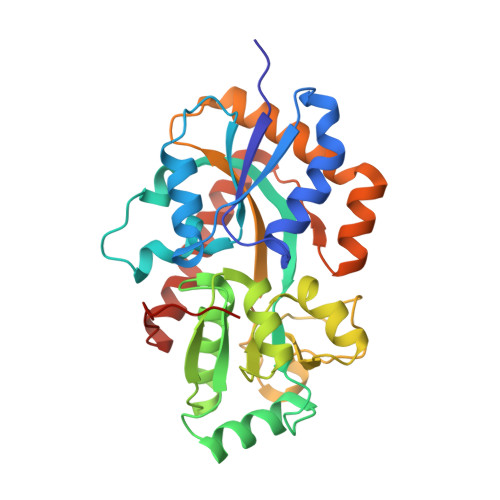Molecular mechanism underlying high-affinity terephthalate binding and conformational change of TBP from Ideonella sakaiensis.
Lee, S.H., Seo, H., Hong, H., Kim, M., Kim, K.J.(2023) Int J Biol Macromol 243: 125252-125252
- PubMed: 37295700
- DOI: https://doi.org/10.1016/j.ijbiomac.2023.125252
- Primary Citation of Related Structures:
8HK9, 8HKA, 8HKB - PubMed Abstract:
Ideonella sakaiensis is the bacterium that can survive by degrading polyethylene terephthalate (PET) plastic, and terephthalic acid (TPA) binding protein (IsTBP) is an essential periplasmic protein for uptake of TPA into the cytosol for complete degradation of PET. Here, we demonstrated that IsTBP has remarkably high specificity for TPA among 33 monophenolic compounds and two 1,6-dicarboxylic acids tested. Structural comparisons with 6-carboxylic acid binding protein (RpAdpC) and TBP from Comamonas sp. E6 (CsTphC) revealed the key structural features that contribute to high TPA specificity and affinity of IsTBP. We also elucidated the molecular mechanism underlying the conformational change upon TPA binding. In addition, we developed the IsTBP variant with enhanced TPA sensitivity, which can be expanded for the use of TBP as a biosensor for PET degradation.
- School of Life Sciences, BK21 FOUR KNU Creative BioResearch Group, KNU Institute for Microorganisms, Kyungpook National University, Daegu 41566, Republic of Korea.
Organizational Affiliation:

















